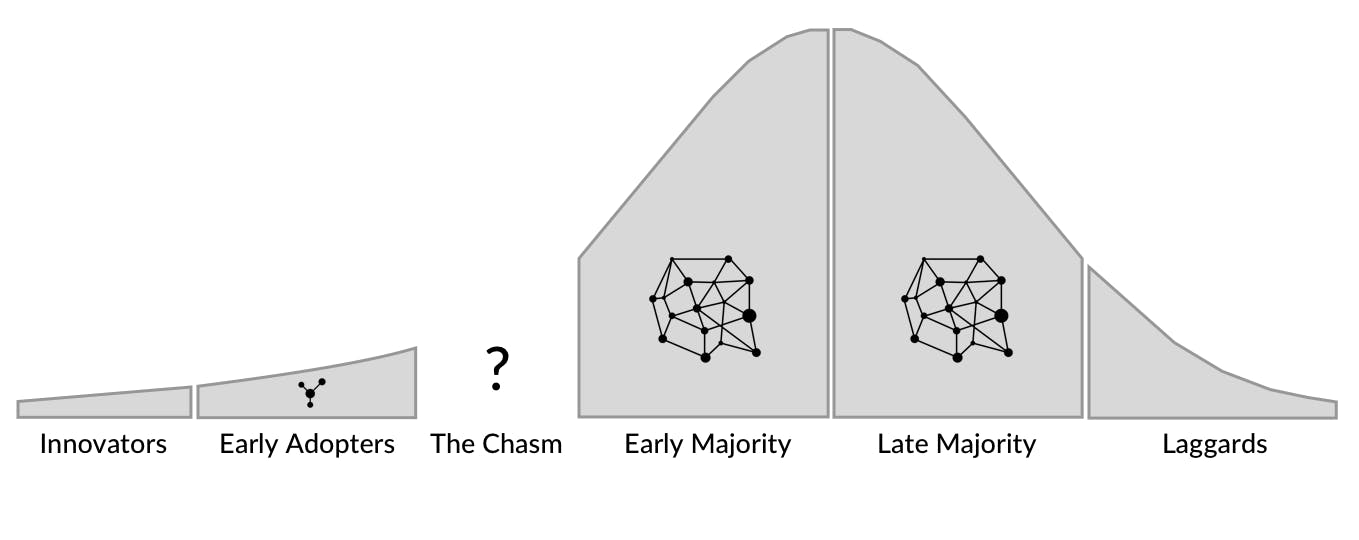The Truth About Mainstream Adoption for Decentralized Applications
There’s an entire industry emerging around decentralized applications. The buzz is all around and yet it’s pretty clear that it’s really early on in the industry’s evolution.
At Blockstack we don’t expect decentralized applications to go mainstream this year, and that’s OK. Anyone who has claimed otherwise previously was getting ahead of themselves. There’s a lot of infrastructure yet to be built and there are quite a few user experience challenges that the development community needs to tackle.
The 2017 and 2018 users are early adopters. They are more forgiving of the user experience, more interested in having their data protected, and intrigued by the possibilities of decentralized apps, or dApps. They know the inner workings of the internet more deeply and are less trusting of big data silos and closed platforms. 2018 may still be the year of the early adopter, but I predict that in 2018 we will see our first true decentralized apps with over 1 million users.

At Blockstack, our strategy is to focus on the developers first and help them build their dream applications. At first, these applications will be simple alternatives to existing apps, but with some UX shortcomings. However, they will evolve significantly over the coming years. Two great examples here of apps being built on Blockstack are Casa, a decentralized alternative to Airbnb, and OpenBazaar, a decentralized alternative to eBay.
Over time, decentralized apps will begin to surpass their centralized counterparts in UX and reliability. They will be cheaper, largely immune to data breaches, and will enable users to own their data. Migration will be easy. All of this combined will result in immense pressure to switch over to these dApps.
In addition, around the same time, entirely new decentralized apps will emerge that are truly useful and have no centralized counterparts. Early versions of some of these apps already exist today, but they haven’t found product market fit. In time, though, these apps or other apps inspired by them will find product market fit. The most successful decentralized apps to emerge over the next few years will be the Googles, Facebooks and Amazons of the new internet.
The future of decentralized applications is strong, but mainstream adoption will take some time. We need to stay grounded, be patient, and buckle up for the long haul. The future we imagine will only happen if we stay true to our vision and put in the hard work together.
Note to the reader: the original version of this article was posted on Medium here.